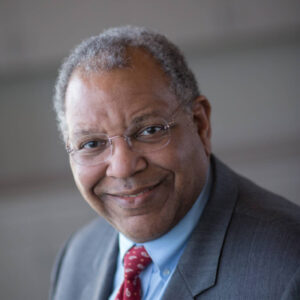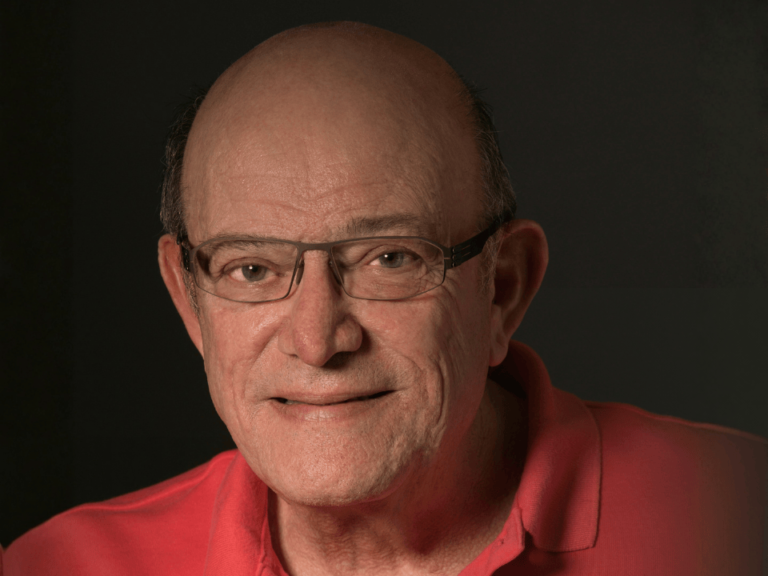Soon after he was diagnosed with a dedifferentiated liposarcoma, C. Norman Coleman reached out to The Cancer Letter and the Cancer History Project to initiate a series of interviews about his life and career.
“I don’t know how much time I have,” Norm said during the first interview.
The plan was to keep going for as long as possible. Alas, only one interview–about an hour’s worth–got done.
Coleman died March 1 at 79 (The Cancer Letter, March 8, 2024).
Colleagues say Coleman was working on a manuscript two days before he died.
At NCI, Coleman was the associate director of the Radiation Research Program, senior investigator in the Radiation Oncology Branch in the Center for Cancer Research, and leader of a research laboratory at NIH.
He was also the founder of the International Cancer Expert Corps, a non-profit he created to provide mentorship to cancer professionals in low- and middle-income countries and in regions with indigenous populations in upper-income countries.
Coleman spoke with Otis Brawley and Paul Goldberg, co-editors of the Cancer History Project. Brawley is the Bloomberg Distinguished Professor of Oncology and Epidemiology at Johns Hopkins University, and Goldberg is the editor and publisher of The Cancer Letter.
As a medical student at Yale School of Medicine in 1969, amid race riots in New Haven, Coleman volunteered to help Black families navigate the healthcare system.
The first thing you do when you go to communities, you listen, you listen, you listen. You listen, you listen, you hear, and then you listen. We’d listen to the communities, give them what they asked for, give them what they should have asked for, and the same deal.
“I think having someone who actually cared about them was a big deal, that you learn about their personal lives, and their relationships, and you began to realize how much people trust you because you’re a doctor,” Coleman said.
Coleman recalls working with one family, which included six children. When someone was sick, or experienced another health problem, they weren’t sure where to turn. Coleman would point them to a doctor and help them navigate appointments.
“I would go over. They had dial up phones those days. You’d go up there once a week, [see] what they had issues with, how they were doing, visit some of the kids,” he said. “You spent time there, you began to know them, you get the familiarity. I loved my visits there.”
Coleman began to understand their perspective.
“I really could understand from how they looked at the healthcare system and how they looked at Yale, why all the anger, all that sort of stuff,” he said. “They didn’t know who I was, but we quickly developed these levels of trust because of what you’re trying to do.”
During a time of unrest, as members of the Black Panther party protested in New Haven, Coleman spent time with this family.
“I could see it from people on The Hill, how unfair things were. Most of them were not violent, but how unfair it was. And that just shouldn’t be,” he said.
What began as an interest in helping people navigate health disparities as a medical student led to a lifelong career in the field.
“When I was a resident at Stanford, we took some rotations out in underserved places,” he said. “And for those of you who remember the Bay Area, the East Bay was actually underserved at one time.”
Coleman went out and conducted tumor boards in the local hospitals of underserved areas.
“So, the whole idea of bringing cancer care to the community seemed to make sense, and bringing cancer care to where people needed it makes sense,” he said.
Later, while at Harvard, where he served as professor and chairman of the Harvard Medical School Joint Center for Radiation Therapy, Coleman visited community hospitals.
“We began setting up a very unique model, which we called an outreach program, not a satellite, which was the idea to bring expertise to the community in cancer care, or help develop expertise,” he said. “They would do the local investment, because they had the resources. With their local investment and our expertise, we would begin to set up cancer programs. The [Harvard] Joint Center had 2,500 new patients a year.”
At NCI, Coleman conceptualized the Cancer Disparities Research Partnership program, which helped build cancer research programs in underserved regions globally.
Coleman worked with Samir Khleif, who is a Biomedical Scholar Professor at Georgetown University, to build Al Aman Cancer Center, which later became King Hussein Cancer Center, in Jordan.
“When you want to do something, it takes the first two years for people realizing that you’re the real deal, and then all the doors open up,” he said. “So, Samir helped build that program that was Al Aman Cancer Center that became the King Hussein Cancer Center, with local investment, Samir being on site, bringing in resources of mentorship to help them do their own work, them building up their excellence. They’re the major cancer center in the Middle East.”
King Hussein Cancer Center is part of the International Cancer Expert Corps, which Coleman founded.


“The first thing you do when you go to communities, you listen, you listen, you listen,” he said. “You listen, you listen, you hear, and then you listen. We’d listen to the communities, give them what they asked for, give them what they should have asked for, and the same deal.
“We had a very successful approach, we think, to building cancer programs.”
Coleman views the ICEC as a Peace Corps for oncology mentorship.
“So, the ICEC was really a cancer Peace Corps to develop mentorship cores where people who would be mentors to help remote places, low- and- middle-income countries who are willing to invest in themselves to then have investment,” he said. “What’s really needed in all these is expertise. So, the expertise with local people, and us mentoring the expertise. That’s been the ICEC model of how do you get expertise, and how do you get it in low and middle income countries, and how do you make these alliances or partnerships.”













